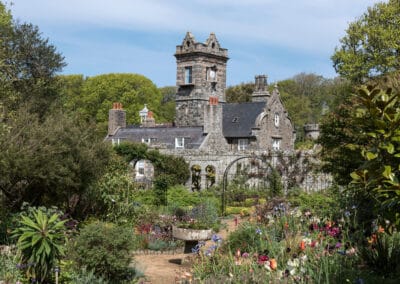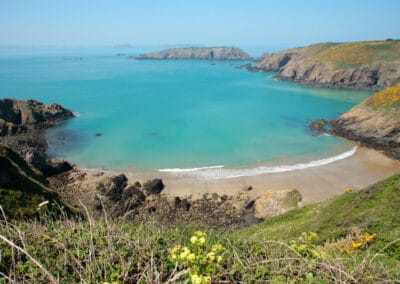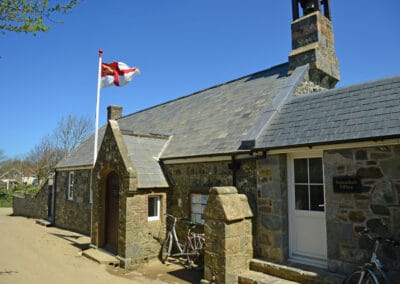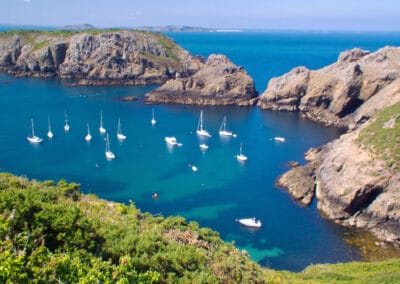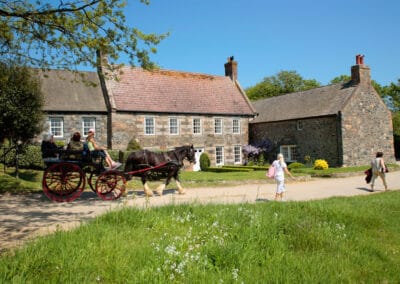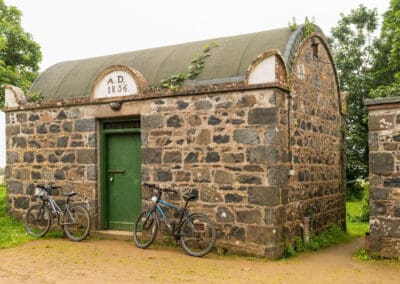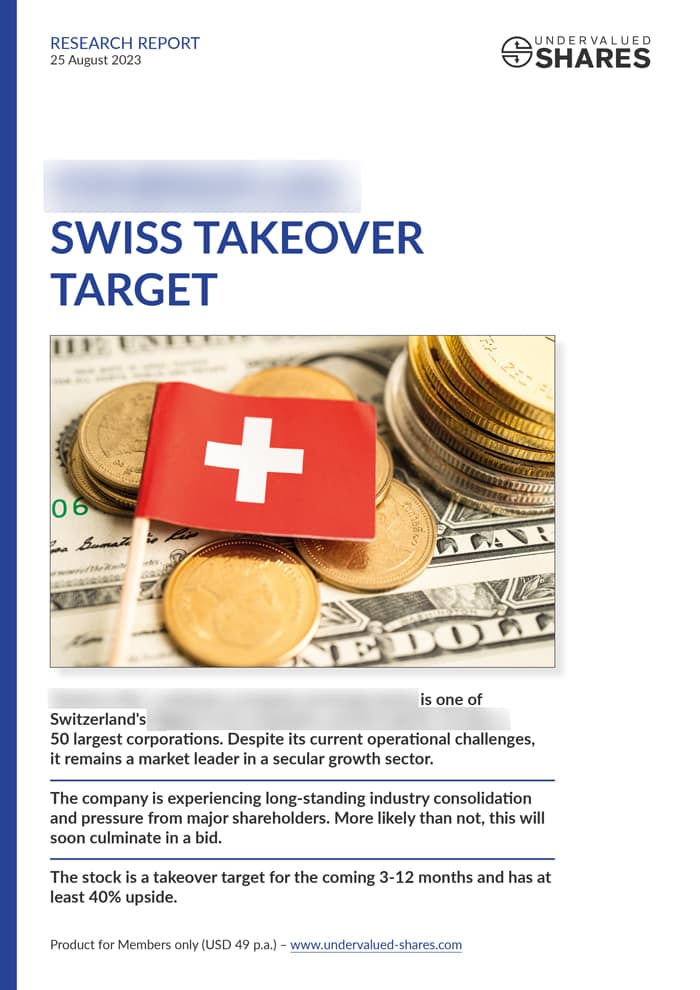I am working to buy real estate for around GBP 100m, put an ambitious and carefully considered investment plan in place for sympathetic refurbishment and development, and float the resulting company on the stock market.
The underlying investment case will be truly unique.
It will involve buying 20-40% of a self-governing, English-speaking island located between France and the United Kingdom, if we can come to a final agreement with a sufficient number of sellers.
Assuming this all comes together, anyone with a brokerage account will be able to subscribe to the company's IPO on the stock exchange. Bona fide Sark residents, in turn, might even get some shares for free.
You are the first to read about it.
A place unlike anywhere else
Sark, a small island off the coast of France, is famous for a range of things.
Most notably, it's self-governing. The island is tiny geographically, measuring about twice the size of London's Hyde Park and 1.5 times New York's Central Park. Its population of 500 would fit into a single big city apartment building. Nevertheless, it is literally its own country, and even has its own UN Country Code. This may sound bonkers, but a jurisdiction's degree of sovereignty doesn't depend on landmass or population numbers.
Elsewhere in the world, the prison shown in the last image of the photo gallery above would not be a major tourist attraction. In Sark, however, it's probably the most photographed building because it symbolises so much of the island. Completed in 1856, it remains as spartan today as it was back when it first opened. It's still in use because Sark has a reluctance to change the old, proven ways. It's also a symbol of the island managing its own affairs. Sark has its own parliament, sets its own laws, and collects its own taxes. It is entirely reliant on itself to survive, but also has incredible powers for that reason, such as being able to lock up wrong-doers. If you cause trouble on Sark, a constable will come after you, and the island's judge will hear your case.
As the gallery also shows, the island has stunning nature, including beautiful beaches and unspoilt coastline.
Back in the day, pirates and privateers would have hidden their loot in its many coves and caves.
Famously, Sark is a car-free island, thanks to a ban of the motorcar introduced in the early 1900s. Residents walk or ride bicycles, while tourists take horse-drawn carriages. Only tractors are allowed, provided someone runs a farm or a business that requires heavy lifting. Due to the ban of motorcars, there are no paved roads on Sark.
Amid all this sits the conspicuous ancestral home – a mini castle, really – of Sark's Seigneur. As a self-governing jurisdiction that is not part of the UK, the island has its own Head of State. Its award-winning gardens are a prime site for tourists to wander around, and its chapel hosts the marriages of couples from near and far who are as enchanted with the island as they are with each other.
Everyone who has ever been to Sark is stunned by the island's natural beauty.
The lack of cars makes for an unusually noise-free environment. As someone told me the other day: "In today's world, quietness is a scarce, valuable asset." With no street lights and only a thinly spread-out population, it's also pitch-black at night. In fact, so clear are the views of the stars from Sark that the island was officially designated the world's first dark-sky island in 2011.
How can a place like this even exist?
It's all courtesy of a contract that was signed in 1565 between a local nobleman and the English Crown. Today's Seigneur of Sark is not just the 23rd holder of this title, but also the legal counterpart of that very same contract signed an incredible 458 years ago. This contract grants Sark the right to govern itself for eternity, provided it fulfils a few basic conditions, such as the Seigneur paying the English Crown a feudal rent of GBP 1.79 per year – no one thought of inflation indexing when the contract was signed. The island also has to demonstrate that it remains capable of responsibly managing its own affairs.
Until 2008, Sark was the world's last feudal state, and the property owners ran the government. Following outside pressure and legal wrangling, the island turned itself into a democracy. Up to 18 elected residents make up its parliament. With almost 4% of its population being a member of parliament at any given time, Sark probably has the world's highest percentage of residents sitting in a legislature.
Its residents enjoy an unusual degree of freedom. E.g., there is no need to report your income or assets to the government, and you can effectively base your tax on the size of the property you live in. Few residents pay more than GBP 5,000 in tax per year. The annual tax return requires filling out just one page, which takes me about 20 seconds. In Sark's volunteer-based governance system, government is a comparatively benign force.
Sark is an accident of history, and quite a funny one in many ways. On a serious note, it also provides its residents with a lifestyle that cannot be found anywhere else in Europe. Anyone living on the island will feel strongly that Sark is totally, utterly special. I count myself among them, too.
Needless to say, only a fool would suggest that all of this isn't worthy of careful, considered protection. Everyone will have their different views on the best way to protect Sark's special character, but as far as the Seigneur is concerned, he can sum up his desired future outlook for Sark in three words: "Quiet, green and dark."
The island's specialness is under threat, though.
A struggling, fragile island economy
Is Sark some kind of a paradise? It sort of is for those who chose to make it their home, but the island also has its flaws, and aspects of it are in danger.
For all its great credentials, it'd be a struggle to describe the current Sark as economically viable or environmentally sustainable.
Surrounded by a fast-changing world and with modern pressures continuously thrust upon the island and its residents, Sark also has its share of challenges.
In spring 2020, rumours circulated that the island's supermarket was on the brink of closure.
Over the preceding ten years, the island's population had fallen from 600 to 360.
The average age of its residents had skyrocketed to 65 years, compared to 41 years in the UK. Like many other islands, Sark's dependency on tourism and its lack of a professional economy made many young people leave. Over time, it turned into an island with too few economically active residents.
In fact, it had too few residents overall. During one particularly dreary winter before the pandemic, a group of residents concluded during an evening in the pub that a mere 90 souls were on the island at the time.
As a so-called Crown Dependency, Sark has a unique legal status that only three other places in the world enjoy (Guernsey, Jersey, and the Isle of Man). However, the privilege of governing itself brings with it the responsibility to stand on its own feet. Military defence and foreign policy have been delegated to the UK, but for all other purposes, Sark is literally like its own country. Try running a community with just 500 people – or 360, or 90.
When the supermarket's future was endangered, a significant percentage of the habitable real estate of the island was standing empty. Additionally, a large number of buildings were derelict. The potential closure of the supermarket was but a further indication of an island that was struggling to remain afloat.
After first visiting in 2004, I had made Sark the base of my own life from 2017 onwards. Despite being the travelling type and operating a company in neighbouring Guernsey, I find it both convenient and enjoyable to have my home base in Sark. The potential closure of the supermarket, I feared, would deal a fatal blow to the island. After all, the British Isles are rife with examples of island economies that had collapsed. Most famously, the island of Stroma in Scotland. After continuous inhabitation for 1,000 years, its population collapsed from 375 in 1901 to 0 in 1961. Even the keepers of the lighthouse eventually moved out. Today, it's a home only for sheep. No one in Stroma in 1901 would have ever thought that possible, let alone within only 60 years.
Island economies can – and do – die.
In August 2020, I published the first edition of "How (and why) to move to Sark", a 300-page manual. Within just 24 hours, my campaign to bring new residents to the island went viral. The BBC carried a story, followed by the Daily Mail and the global mainstream media.
Four months later, 120 new residents had registered on Sark.
The influx of residents provided a much-needed shot in the arm of Sark's economy. The shelves in the supermarket suddenly offered a wider selection again, landlords rented out properties that had sat empty or were rented to caretakers for peppercorn rents, and the revenue of the local ferry company increased during the otherwise quiet winter period. Residents old and new mingled at a big party that I organised, featured by one of the local TV stations.
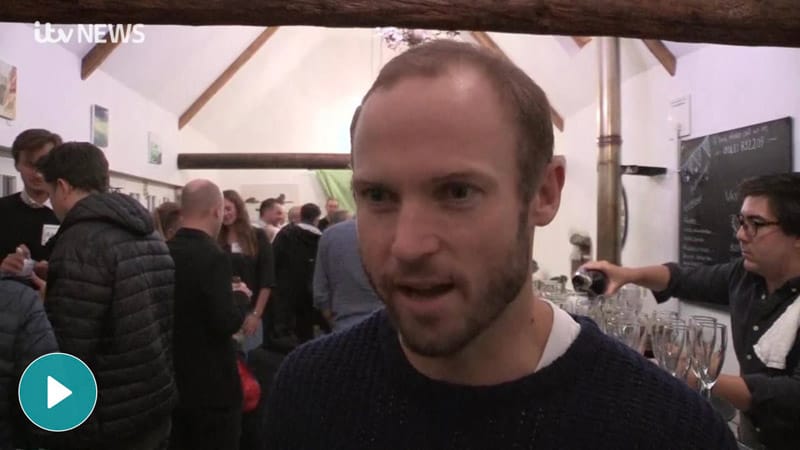
Source: ITV Channel Islands, November 2021.
The campaign had its inevitable downsides. An influx of solvent residents into an ailing economy meant some existing residents were struggling to keep up with previously depressed rents suddenly recovering 20-50%. The churn among new residents was higher than it should have been. Some of the newcomers expected that the island should change around them, rather than them integrating into the existing way of life, which caused friction.
Lessons learned, and useful ones as such. I added a foreword written by the Seigneur to the second edition of my Sark immigration manual, where he issued the advice not to get involved in local politics straight off the bat, but to first listen for an initial year (or two).
Such imperfections aside, I had always wanted this campaign to be a marketing test:
- Would anyone at all be interested in moving to Sark?
- Is there a case for helping Sark in other ways than bringing fresh blood?
- Could Sark benefit from new investment?
All of this has stirred ongoing media interest. The Financial Times Weekend Magazine published an eight-page feature about Sark and my activities, asking whether the island was "Galt's Gulch", a tribute to the libertarian enclave in Ayn Rand's magnum opus "Atlas Shrugged". LINK
Indeed, in today's precarious world, Sark has the potential to become a success not despite it being old-fashioned and different, but because of it.
Sark is:
- Debt-free.
- Culturally geared towards self-reliance and small government.
- In control of its own fate, and able to determine where it goes from here.
Sark has both the necessary legal standing and the culture to further improve what it has, and become a model for the world to be inspired by.
Even German state television recently realised as much. ARD's global documentary programme wanted to do a feature about Sark as a tax haven, but ended up doing a seven-minute feature asking if the rest of the world could learn a trick – or two – from Sark.
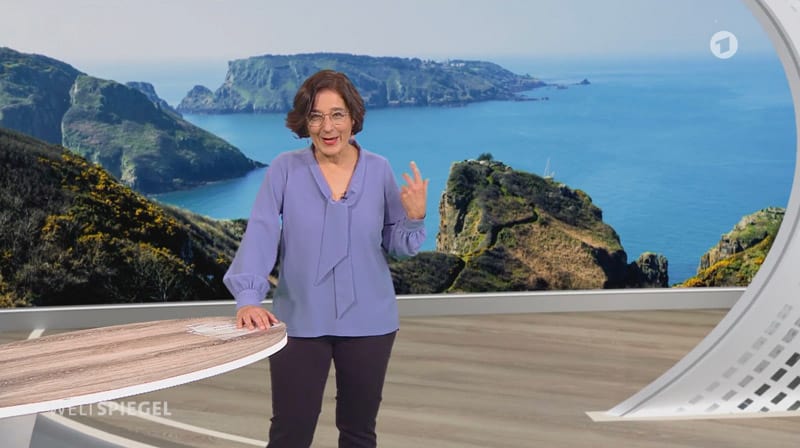
Source: ARD, October 2022.
If the basic conditions are so good, why did Sark ever even suffer an economic crisis?
How could so much desirable real estate have sat empty for years?
Explaining the island's past is complex, as is any potential path forward.
Unblocking a deadlocked situation
By publishing this article, I am floating a plan that the local media received a partial preview of a few months ago. Locally, it's already widely known that I have been working on this matter and in close coordination with Sark's Head of State.
In fact, even my 2020 campaign to bring new residents to the island was something that I had only embarked on once I had the go-ahead from the Seigneur. Christopher Beaumont, the current owner of the feudal title to Sark, had publicly made a case that Sark needed more residents. Even though his role is primarily ceremonial, his family is the constitutional backbone of the island and the one party that naturally has the island's long-term interests at heart. If he had said "Swen, don't do it!", I would not have published my immigration manual. As it turned out, the Seigneur was supportive – no wonder, given that the island as is can't even sustain a bakery. Increasing the population of Sark to a level where the island's community and economy becomes sustainable should really be a no-brainer.
Since then, the Seigneur and I have continued to work together. To give it all a true long-term outlook, we involved his son and heir, 26-year-old Hugh Beaumont, right from the start.
We gathered lots of archival material and data about Sark, some of it yielding surprising realisations. E.g., the island's current real estate alone could easily house 1,200 residents – without adding a single square foot to the existing real estate footprint. Even among Sark residents, few would know how badly utilised the existing real estate footprint is.
Following two years of analysis, we feel strongly that Sark needs inward investment backed up by a long-term plan. Ideally, we'd love to see a plan for the entire island, and one that is created using input from all residents and stakeholders, and geared towards a 25-50-year horizon. As part of that, the population should debate the desired long-term population size, not just because of what we'd like to achieve but for an urgent reason unrelated to us. Due to its unique relationship with the UK, some 73m British and Irish citizens can move to Sark without the need for a visa, provided they can find housing. At a time of record-high taxes elsewhere in the British Isles and new possibilities for remote working, it's now just a matter of time before many existing Sark residents will be pushed out of the real estate market by newcomers from the UK paying stratospheric prices to get in. There are many reasons why the island needs to take charge of its planning and put suitable policies in place.
Realistically, all of this will require the support and input of suitable experts. This will cost money, and quite probably more than Sark's population could afford at this time. Sark has some rich residents, but also many residents who struggle with the current cost of living crisis.
Sark's stakeholders have been aware of many of these issues, but often struggled to act. E.g., to this day, it's possible to be a legal resident of Sark despite spending zero days per year on the island. The first effort to close this loophole took place in 2014, but went nowhere. In 2020/21, I publicly lobbied for a 90-day presence requirement and even provided advice to a government committee. Sark's parliament published initial findings, but then dropped the ball once again. Struggling to keep the island economy afloat but allowing individuals to claim residency without ever spending any money locally makes no sense and is a homemade problem. However, even many issues that seem obvious and easy to resolve have not always been advancing in the way one would expect. Through no individual's fault, Sark is a bit stuck.
It became clear to us that change would be unlikely to happen fast enough if there wasn't one financially strong party that could help Sark's civil society to cut through a few Gordian knots.
In April 2023, we went public with the rough outline of the endeavour:
- Buy existing Sark real estate totalling up to GBP 100m.
- Provide further investment to enhance the real estate portfolio.
- Support the creation of a long-term plan for the island, through measures such as bringing suitable experts to the island. Provided, of course, the residents and key stakeholders would want such help.
The good news is, a lot is possible. Sark is the kind of place that mobilises support from near and far. My team has the right kind of global network to bring in the best and brightest, and a small percentage of the uplift on a large portfolio can pay for a lot of work that Sark's government would otherwise struggle to have the island's tax base pay for.
One of the main questions we are currently working to answer, is whether our company would initially focus primarily on its own assets, or get involved with efforts aimed more broadly at helping Sark move forward.
Quick wins in real estate
Fixing the existing derelict real estate was always going to be an obvious target.
The Sark investment case isn't difficult to comprehend. Fixing up empty, decaying real estate in a market that is red hot thanks to ever-growing outside interest from people who want to live there is a straightforward proposition. As one local newspaper headlined earlier this year: "Sark represents a 'huge opportunity for regeneration'". It really is, with remote working and the island's first-class Internet connection being just two of the contributing factors.
Less obvious are some of the special opportunities hidden within this entire situation.
E.g., Sark has so far been a cash-only real estate market. Because of its anti-debt stance, lending against real estate was outlawed in Sark in 1611. In 2021, following 20 years of discussion, Sark's parliament legalised mortgages. However, nearly three years later, Sark's young people still can't get onto the property ladder. Local banks won't lend because they deem Sark's real estate market too small, too complex and too risky. However, they would lend if there was a legitimate local player who provided a first-loss guarantee for a first batch of experimental mortgages aimed at getting the market going. Our project's budget includes the provision of such a first-loss guarantee to enable up to GBP 5m of mortgages given out to existing residents. We even have the necessary local bank at the ready to work with us (which would deal with the fact that recent financial regulation prohibits this form of lending to come from anyone but a bank). Introducing lending into a cash-only real estate market would enable younger people to get onto the property ladder, and reward the guarantor with an uplift in real estate values that pays for it all.
The mortgage situation is just one example where Sark is currently is a bit stuck, and where an inward investor who is aligned with the needs and views of key stakeholders could help unlock the situation and enable things to start moving forward again.
There are many other areas where we could create value, and potentially quite quickly. In a place where there is a lot of decaying real estate but also a lot of unmet demand, it's not difficult to figure out how to make an investment case work. Crucially, even such conventional measures would make it pay off for our investors, which is a prerequisite for all of this. Sark won't ever get outside funding from anyone, and unless it's commercially viable, our belief is that nothing might happen.
Of course, there is also the possibility of supporting a broader vision for Sark.
The public has spoken
When the Seigneur and I first put some of our plan into the public domain, a local newspaper called it the "£100m dream for a Sark 'utopia'".
Needless to say, all this caused a flurry of activity and discussion, including the unavoidable (and valuable) dissent. Given that an estimated 60-70% of the island's current population moved there from elsewhere, there was always going to be a broad spectrum of opinions on what's best for the island.
As another test, we financially supported a bottom-up exercise to find out what Sark residents want. On an island where only a minority of people would be what would normally be described as "locals", what would the resulting dynamics in civil society be? Which priorities would emerge from public debate and stakeholder input? Is this a project we should contemplate at all, or would we have to call it off because of a firestorm of public opinion? We put all this to a test in April 2023.
Much of what followed over the past four months fell exactly in line with our expectations.
There is a considerable desire among Sark residents to see change.
On the wish list are:
- More housing, especially of the affordable variety.
- Improved harbour facilities, something that affects everyone on Sark.
- Better access to services, whether in hospitality or healthcare.
As ever in such situations, not everyone is in favour of change.
One resident accused my endeavour of breaking local financial regulation. Another resident wished a SWAT team with firearms to visit my house and arrest me. Some of the criticism was funny, while other parts merely reflected badly on the individual. In any case, we took any negative feedback serious and offered to sit down with anyone who wanted to talk.
Participation in this debate has been HUGE. One particular public gathering brought 150-200 residents to a public forum. This represented a percentage of the voting population that few other jurisdictions could bring together. On another occasion, I gave a presentation to the members of Sark's Chamber of Commerce.
On the whole, it seemed that there is a desire among the vast majority of residents to see improvements on the island.
We would have folded our activities had we felt otherwise.
Quite literally, the stars seem to be aligned for Sark to take ambitious steps forward. This past summer, the island has been experiencing a particularly challenging tourist season with numbers down about 25% according to some. Atrocious weather and a high number of ferry cancellations conspired with a post-pandemic visitor lull. In a place where many residents rely on a four-month tourist season to make a living for the rest of the year, many Sark residents have just been dealt ANOTHER financial challenge.
"SOMETHING has to change", one worried resident told me while looking across his empty tourist venue.
What, though?
Getting two options ready for investors – and the island
As ever when you engage a community and there is talk of large investment that requires maximum stakeholder buy-in, you get a long wish list as a result.
The company that the Seigneur and I set up for this project – the Guernsey-registered Sark Property Company – had anticipated all that. We had experts at hand and the necessary budget to help figure out what's possible.
Improving the harbour?
Following the public's interest in the subject, our company hired a world-leading expert for harbours and marinas. He subsequently visited Sark to look at this question and provide us with a report. We invited all relevant stakeholders to provide input and vowed to make the report available to anyone who wants to see it once it's finished. It's merely an initial assessment, but will help further conversations.
Extending Sark's tourism season?
We found an organisation that has succeeded beyond its wildest dreams in making another wet, windy destination in the British Isles a successful place for tourism in winter. Sark's lack of visitors outside of the dreadfully short summer season is a major drag on the economy and peoples' lives. We could get expert input aimed at alleviating this problem.
Helping with affordable housing?
In most Western European countries, real estate developers need to commit to building a certain percentage of affordable housing, if they are to get planning permission for a new development. No such legal requirements exist on Sark. However, our company's budgeting includes a significant component of affordable housing as a voluntary measure.
Ensuring the island is not abused by criminals?
Right now, as far as we know, there are almost no checks on people who move to Sark. Our company established relationships with specialised service providers who help other jurisdictions with screening new residents. If we become a landlord on Sark, we'll use these services to professionally screen all our clients. We'll offer the Sark government the same service, should it have a desire to screen newcomers before they get in.
Dealing with the island's ailing energy infrastructure?
Our investment case has a budget provision to deal with the issue, if the relevant government committees of Sark wanted an energy solution that did not require taxpayer funds to pay for upfront investment or expensive loans. As an investor that would combine scale and legitimacy, our cost of capital would be lower than any other external source of funding for such capital investments.
Securing Sark's independence against adverse circumstances?
We have a proposal for creating an emergency fund for Sark. One of the world's leading experts for sovereign wealth funds has already worked out an analysis for us how such a fund could be managed for the benefit of Sark. Under suitable conditions, our company would be willing to seed it with an investment that could grow to a GBP 100m reserve over 20 years – 58 times the island's current annual government budget of GPB 1.7m. Expressed as a multiple of the government's annual budget, this could become the world's largest sovereign wealth fund and put all Sark residents into a position that would make them the envy of the world. For all of this, we can provide extensive documents for others to take a look at and form an opinion.
Is any of that desired, though?
We assume so, but we allow for our judgment to be wrong. Outside of always keeping options such as filing away our ambitions for a few years or calling them off entirely, we have ensured that the base case of our investment plan doesn't depend on any of it.
Sark has a history of large inward investment on a prior occasion, but in a way that too many residents at the time found to be too top-down.
We are all the more cautious for that reason. For anything that goes beyond fixing up derelict and underutilised properties, our approach is very much bottom-up. We'll ask what's desired, and analyse if there is a way we can provide help from within our commercial project.
Our base case for investing in Sark is to buy existing but underutilised commercial and residential property, and then revitalise it using the island's existing building regulation.
This'll work well enough to raise investment, as we just found out for sure a few days ago.
Shortly before publishing this Weekly Dispatch, I received the first draft of one report that I will NOT share with anyone. I had been eagerly anticipating this draft, and was delighted with its conclusions.
It's an analysis of Sark's tourism and visitor industry, combined with a plan of what could be done by a large investor who succeeded in buying significant parts of the existing tourism infrastructure and some ancillary real estate.
What I can say is that the numbers confirm that there is a solid investment case for a less ambitious base case of simply improving existing properties. This wouldn't see the company help with other issues faced by Sark, and instead focus on the portfolio of real estate and simply building on existing Sark laws and regulations.
It'd still be entirely and immediately aligned with the overall idea of protecting what makes Sark special. Since we both live on the island, the Seigneur and I are also personally passionate about wanting Sark to become a "green, quiet, dark island" that is economically and environmentally sustainable. However, we also had to secure our investment case against scenarios where local stakeholders may be too slow to work with us or tell us that Sark wasn't interested in broader long-term planning.
The bottom line is, our company will now focus on pursuing one of two potential scenarios – one a little less ambitious and with fewer benefits for the wider community, and a larger one with more benefits being spread around if desired by the island's various stakeholders and its residents.
Soon, we should know where the chips fall. Or, to be precise, if there will be any chips at all.
Final push in a three-year marathon
28 months since I started this project by sending a two-page project outline to the Seigneurie, I'd like to think that we have come 80% of the way towards making this work.
Along the way, I've made a couple of commitments:
- To existing real estate owners who are considering to sell: our company will make them the highest offer that anyone would pay for Sark real estate right now. Having a better plan than anyone else, we'll simply be able to offer more than anyone else. Everyone will be free to turn down our offer, but it will be a good offer.
- To anyone from the community: our company will involve all stakeholders, and strive to work to the benefit of anyone who is willing to engage constructively. We will also be more transparent than anyone else has ever been on Sark.
- To the Seigneur's family: our company will be a so-called perpetual capital vehicle, to support a multi-generational endeavour aimed at securing Sark's future for generations to come. The Seigneur is one of the two directors of the company we set up for this purpose, so he (and his family) can shape this from the inside. (Investors appreciate this, too. Just about every single investor we ever spoke to gave the feedback that having the Seigneur back the project is vital – no funding agreement will go ahead without him being on the inside.)
This has not been an easy endeavour, primarily because it's extremely complex. E.g., figuring out how to make the investment case work so that we can actually come up with the triple-digit millions required, took us over two years. Our more extended scenarios would probably require closer to GBP 300m, and this sort of money isn't easy to come by.
Sark is the kind of investment case that will always get a lot of "interest" from anyone you mention it to, but this initial enthusiasm tends to fall away once someone looks at the underlying details. It's not unusual for potential investors to turn up on Sark with big ideas. However, as the derelict state of much of Sark attests to, these things subsequently never happen. Someone being interested is two a penny, getting someone to actually sign on the dotted line is where the difficulty lies. As the fundraising rule says: "Money is earned in due diligence."
With where we are now, paying for it all is not our worry anymore. Other projects struggle to find one potential anchor investor; we've already had several of them at hand before even going public with this. We even turned down requests by some funders to fund the entirety of the project with a single cheque, because we didn't want any one investor to dominate the company (or, by extension, Sark).
Our work is now focused on:
- Fine-tuning final details of the plan, using the reports and expert input we had worked out for us over the summer months.
- Continuing conversations with any stakeholder who wants to engage with us, to see where we can work together for maximum benefit of all parties involved.
- Getting suitable offers in front of a number of existing owners, and see if we can come to an agreement with them. Until then, our company is all concept and no property.
As to how all this will be done, a surprise factor entered the equation during the past few months.
Somewhat to our own surprise, the pendulum has swayed towards probably making this a publicly-listed company from a relatively early stage.
This is where you – my valued readers – may be able to get involved before too long.
The public wants in
One of the benefits of living in a small community is that you can talk to anyone and everyone quite easily, often by simply passing them in the street.
"Can I also invest?" is a question that I've been asked by more than one resident of Sark.
In fact, we had long considered making this a public company eventually. There are several historical precedents from similar jurisdictions, such as the Falkland Islands Holding Company, a Royal Charter company which used to be listed in its own right and nowadays forms part of the London-listed FIH Holdings (ISIN GB00BD0CWJ91, UK:FIH). Similarly, Monaco's Société des Bains de Mer (ISIN MC0000031187, Euronext:BAIN) which has become an example for the kind of insane long-term returns investors can generate from a company that is significantly aligned with a small sovereign territory and its government. SBM takes care of commercial development, while the government and a sovereign wealth fund deal with related social issues, such as a resilience fund for emergencies and providing 4,000 affordable apartments for Monegasque citizens. Nothing of what we propose wouldn't have been done elsewhere already in a comparable form, and it's there for Sark to learn from.
There is even a local stock exchange that could be used for the purpose. Guernsey is the home of The International Stock Exchange, formerly called the Channel Islands Stock Exchange. We just had not anticipated the level of interest there'd be in having such an investment vehicle become a public company.
I have already held conversations with investment banks and stock exchanges to explore an IPO of the Sark Property Company. This could be done in Guernsey or in London – or both.
Listing on a stock market would democratise investment in Sark's future. Anyone with a few quid could buy and sell stock in the company. We might even gift a few shares to each bona fide resident of Sark, so that everyone legitimately living in Sark gets the opportunity to watch it all from the inside. (For large investors, though, we'd probably implement a voting limit of 19.99% – just to make sure we won't ever see anyone trying to buy themselves a jurisdiction.)
Such details aside, being publicly listed would also make the company transparent. More transparent, in fact, than anything currently done on Sark.
Next steps?
To be brutally frank, for a number of reasons, it's risky for me to write about these things at this stage. To state just the obvious example, none of this may ever happen, and it could all turn out to have been but an expensive pipe dream. I may end up regretting every single word I put on paper. Also, whatever I say about our plans, there's bound to be criticism. Some media outlets will likely have a field day trashing our work, and their reporters won't be able to (or interested in) distinguishing if negative feedback is rooted in majority feedback or merely represents a vocal minority. This lengthy article will see journalists have a field day taking individuals parts and re-publish them out of context.
However, our plans and ambitions are matured to a point where I wanted to get ahead of the inevitable media reports. Given how the media operate and with a small handful of Sark residents busying themselves spreading falsehoods, we had no choice but to get ahead of fake narratives and put the real version of events into the public domain.
Given the sheer number of people we are speaking to in order to create the kind of dream team that we have in mind for this company, it's now probably a matter of weeks rather than months before there'll be additional reports popping up. The Guardian recently made a start with an article which was directionally accurate in some ways, but error-ridden, sensationalist and speculative in many other ways. With what's at stake, I had to put my own statement out there.
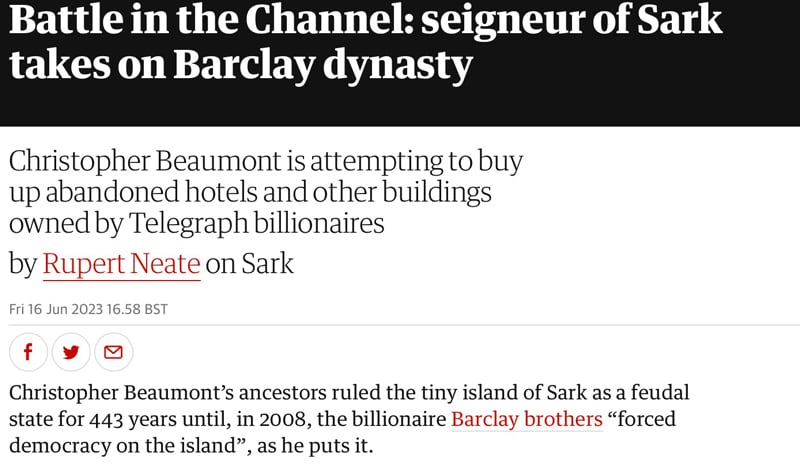
Source: The Guardian, 16 June 2023.
I am also publishing this as a way of reaching out to anyone who'd potentially like to speak to me about this. Putting yourself out there always leads to valuable feedback.
Case in point, more Sark real estate owners than anyone would have imagined have already been in touch with us about being open to offers. There is a local perception that "nothing on the island is for sale"; however, that's not true once owners can speak to a party that is credible financially and trusted to not publicly divulge conversations. It had always been evident to us that Sark has a backlog of potential transactions caused by factors such as the lack of mortgage financing and inheritance cases, and this hunch has proven right in the meantime. Building on this interest, we will eventually organise a maildrop to offer anyone potentially interested in selling to have a conversation with us. Our company will have the means to buy out willing sellers, and we'd be open to purchasing up to 40% of the island's surface area if that was required to implement a plan that also helps to resolve many of the island's long-standing issues.
As a next step, we'll now finalise our funding conversations. We are already in conversations with potential anchor investors from the UK, Western Continental Europe, and North America. Still, there may be other suitable investors out there who want to get involved and may even contribute more than just money. Ahem, Silicon Valley – anyone? Further support and input are always welcome.
Nothing is set in stone yet, but we'll soon know if any of this happens, or not.
I placed our efforts to create the Sark Property Company underneath the umbrella of my licensed fund management company, Sarnia Asset Management. I even met with our financial regulator, to inform them of our ambitions and double-check regulatory aspects. Placing the Sark Property Company under the helm of a licensed fund manager was merely a precautionary measure. This plan does not fall under fund management regulations, which makes it easier to engage with the public.
In essence, we are free to talk to anyone about the investment aspects of this, in any way and shape we like.
No doubt, I'll have some readers with very relevant expertise or potentially quite significant interest in this venture.
Alternatively, just visit!
Sark is beautiful, amazing, and simply special. Why not visit?
Its tourist sector needs more visitors, and you can find more information on the website of Sark Tourism.
Just don't get into any trouble while you are there, because the prison cells ARE quite spartan!
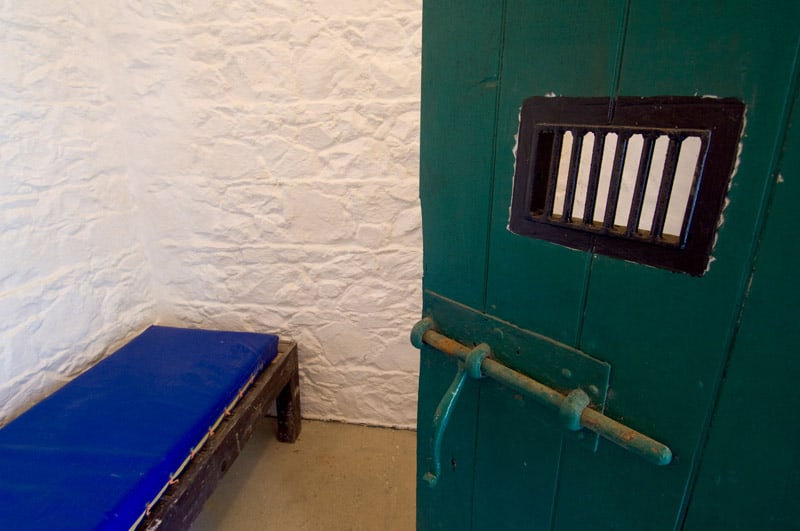
Introducing: bid target with 40% upside
Interested in a takeover target from Switzerland?
The company in my latest research report has come into the crosshairs of one of the best activist investors in Europe.
I expect a bid to come in at least 40% above the current share price over the next 3-12 months – a "quick flip" situation.
Introducing: bid target with 40% upside
Interested in a takeover target from Switzerland?
The company in my latest research report has come into the crosshairs of one of the best activist investors in Europe.
I expect a bid to come in at least 40% above the current share price over the next 3-12 months – a "quick flip" situation.
Did you find this article useful and enjoyable? If you want to read my next articles right when they come out, please sign up to my email list.
Share this post:

